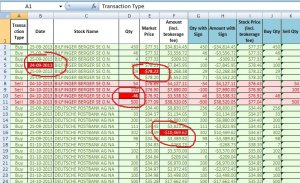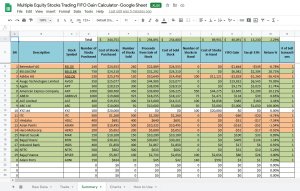
Trading Strategies Start the discussion!

What is Trading?
Simply put, trading is the buying, selling, or exchanging of assets or services. This basic economic concept can occur in any economy with producers and consumers and is most undertaken in return for money.
Within a global economy, trade takes place on an international level by trading nations. This enables participating countries to expand their markets to include goods and services that would not otherwise be available. Resultingly, international markets bring greater competition, more competitive prices, and a cheaper product for the consumer. The theory of comparative advantages postulates that trade is, by definition, beneficial to all parties. In reality, however, it often leads to stratification among participating countries. Protections such as trade tariffs (a tax imposed by one country on the goods and services imported from another country) are often implemented due to political motives such as ‘trade wars.’ Trade wars happen when countries retaliate against each other by increasing import tariffs or other restrictions on another’s imports.
How Does Trading Work?
Whether trade is referring to the exchange of Pokémon cards or multinational policies setting protocols for importing and exporting goods, trading is facilitated through three principal types of exchanges.
A benefit of global trade is gaining access to goods and services not available in one’s home country. Whilst almost any type of good or service can be traded, examples of traded goods include food, clothes, oil, currencies and water, and traded services include tourism, banking, and consulting. On the global market, a product that is sold is called an export, and a product that is bought is called an import. Imports and exports are important factors considered when studying a country’s current account status in the balance of payments.
Not only does trading internationally increase a country’s efficiency, but participating in the global economy encourages the opportunity of Foreign Direct Investment (FDI). FDI is the amount of money that individuals invest into foreign companies and assets. In participating in FDI, countries can grow more efficiently to become competitive economic participants. In addition to benefitting exporters, importing trade through FDI is a means for governments to encourage foreign currency and expertise to enter the country. In turn, this raises employment levels and can lead to growth in GDP. For investors, FDI encourages expansion, growth, and higher revenues to companies.
When a country spends more on aggregate imports from international trade than it earns from its exports, it is called a trade deficit. This can also be referred to as a negative Balance of Trade (BOT).
Types of Trading Strategies
News Trading Strategy: Trading based on news and market expectations.
EOD Trading Strategy: The end-of-day (EOD) trading strategy is the practice of trading near the close of markets when it becomes evident that the price is going to settle or close.
Swing Trading Strategy: This refers to trading both sides of a financial market with an aim to buy a security before a suspected market rise.
Day Trading Strategy: Intraday trading is undertaken when traders want to actively trade in the daytime to take advantage of price fluctuations between market opening hours.
Trend Trading Strategy: When a trader users technical analysis to define a trend and only participates in trades going in the direction of the predicted trend.
For More on Trading Strategies:
Trading Strategies Every Trader Should Know
10 Day Trading Strategies for Beginners
Most popular Strategies
 Easy-to-use Excel calculator for calculation of profits in equity stock trading using FIFO method for multiple stocks with Carry Over Option and Yearly Summary.5,97917add_shopping_cart$39.00
Easy-to-use Excel calculator for calculation of profits in equity stock trading using FIFO method for multiple stocks with Carry Over Option and Yearly Summary.5,97917add_shopping_cart$39.00 by Soni Excel Solutions
by Soni Excel Solutions

Multiple Equity Stocks Trading FIFO Gain Google Sheet Calculator
Very handy Google Sheet Calculator to calculate trading profits for multiple stocks in single sheet using FIFO method.2,5929add_shopping_cart$29.00 by Soni Excel Solutions
by Soni Excel Solutions

Trade Tracker & Portfolio (Google Sheets Template)
This template will help you keep track of your trades and help visualize your portfolio performance3,4683add_shopping_cart$10.00 by Bassir Ahmadzai
by Bassir Ahmadzai

Options Trading Excel Model (With Fundamentals)
Options Strategy Excel Model With Greeks and valuations (Black Scholes and Binomial Tree)3,0571add_shopping_cart$49.00 by Jatin Goel
by Jatin Goel

Startup Business Plan for General Trading with Scenario Analysis
This is startup business plan for general trading with 3 scenarios analysis1,163Discussadd_shopping_cart$50.00 by ECF Consultancy
by ECF Consultancy

ProfitQube™ Production Pro - Enterprise Integrated Financial Planning, Production,Trade,Services (Excel/VBA, rel.1.2.15)
ProfitQube™ establishes a new standard in financial planning as the best EIFP application for SMEs and Consultants332Discussadd_shopping_cart$99.00 by Gian Paolo Avanzo
by Gian Paolo Avanzo








